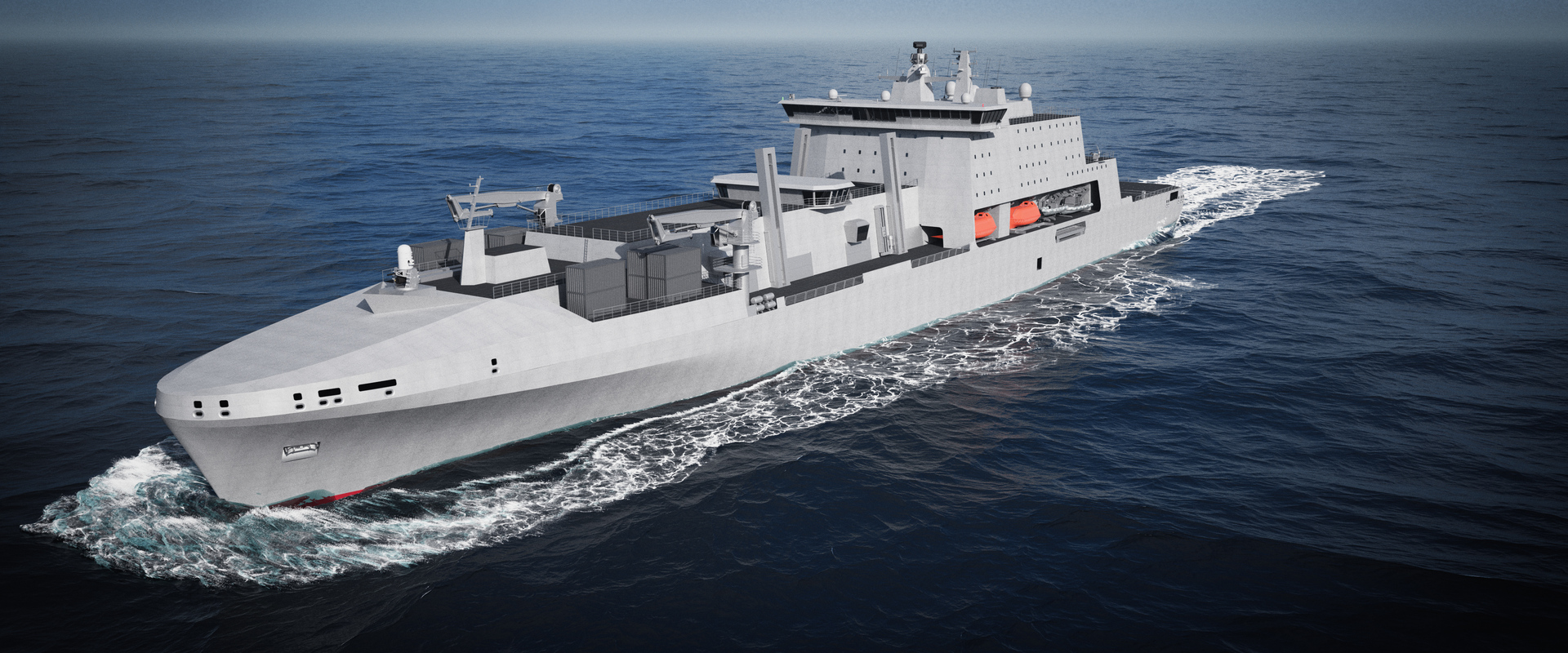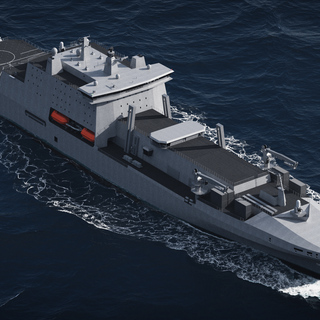
Fleet Solid Support (FSS) Ships
Next-generation replenishment ships for the UK Royal Fleet Auxiliary, critical for sustaining the Royal Navy's Carrier Strike Group.
The Royal Fleet Auxiliary’s Fleet Solid Support (FSS) ships are essential to sustaining the UK Royal Navy’s Carrier Strike Group at sea. These vessels are designed to deliver vital munitions, supplies, and provisions during operations — enabling extended deployments without returning to port. Beyond replenishment, FSS ships will also support counter-piracy, counter-terrorism, and multinational missions alongside UK allies.
The programme prioritises sustainability, incorporating energy-efficient technologies, low-carbon fuel adaptability, and future-proofed systems to reduce environmental impact — aligning with the UK’s Net Zero 2050 strategy. It also supports UK industrial growth by strengthening sovereign design and shipbuilding capabilities, as outlined in the National Shipbuilding Strategy.
FSS Programme
The FSS programme for the UK Ministry of Defence is led by Navantia UK, with BMT functional design, Navantia detail design, and construction involving two shipyards in the UK: Harland & Wolff Belfast part of Navantia UK and Navantia UK Appledore in Devon. This collaboration merges British engineering expertise and strengthens UK sovereign shipbuilding facilities.
With a focus on economic growth and digital transformation, the programme is transferring advanced shipyard technology to the UK, contributing to long-term industrial benefits and potentially unlocking £1 billion, over the next five-years, in potential future opportunities across naval, commercial, and renewable sectors.
FSS Concept and Functional Design
BMT’s UK-based engineers and naval architects have developed an advanced design for the three FSS ships, enhancing the Royal Navy’s operational capability and logistical support. Each 216m vessel is optimised for efficiency, environmental compliance, and 30-years of reliable service. The design includes cutting-edge energy-saving technologies, future fuel adaptability, and emission-reducing systems, supporting the Royal Navy’s Net Zero 2050 goals.
In addition to ship functional design, BMT is delivering comprehensive through-life support, safety and environmental assurance, integrated logistic support (ILS), cyber assurance, and bespoke training packages. These services ensure the FSS ships operate safely, securely, and effectively — both at launch and throughout their lifecycle.
The ships will be the largest in the RFA and the second largest in the Royal Navy after the Queen Elizabeth-class carriers and will share design commonality with the RFA’s Tide-class tankers. Each vessel will support a core crew of 101, plus up to 80 additional personnel as needed. Construction begins in 2025, with all three ships entering service by 2032.
The FSS contract reinforces BMT’s trusted collaboration with the Ministry of Defence and showcases the UK’s global leadership in marine engineering, naval architecture and integrated logistic support.
Key benefits include:

The Fleet Solid Support (FSS) ships designed for the Royal Fleet Auxiliary to deliver vital munitions, supplies, and provisions during operations, are essential to sustaining the UK Royal Navy's Carrier Strike Group at sea.

The Royal Fleet Auxiliary (RFA) Military Afloat Reach and Sustainability (MARS) tanker by BMT is an IMO-compliant vessel designed to the specific requirements of the UK Royal Navy.

The Airbus A400M is a four-engine turboprop military transport aircraft being designed and manufactured by Airbus Military, we supported the MoD A400M Project Team with the development of the VfMB required to support the In-Service Support Assessment Phase.

NG1125 - 27m Wind Farm Support Vessel